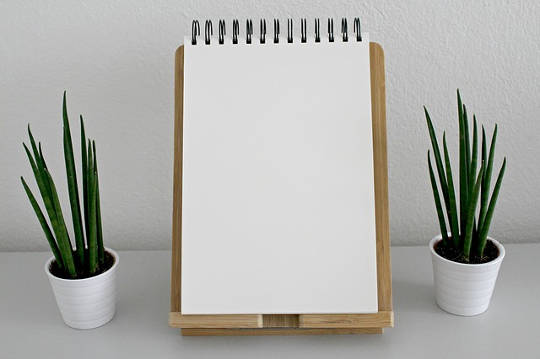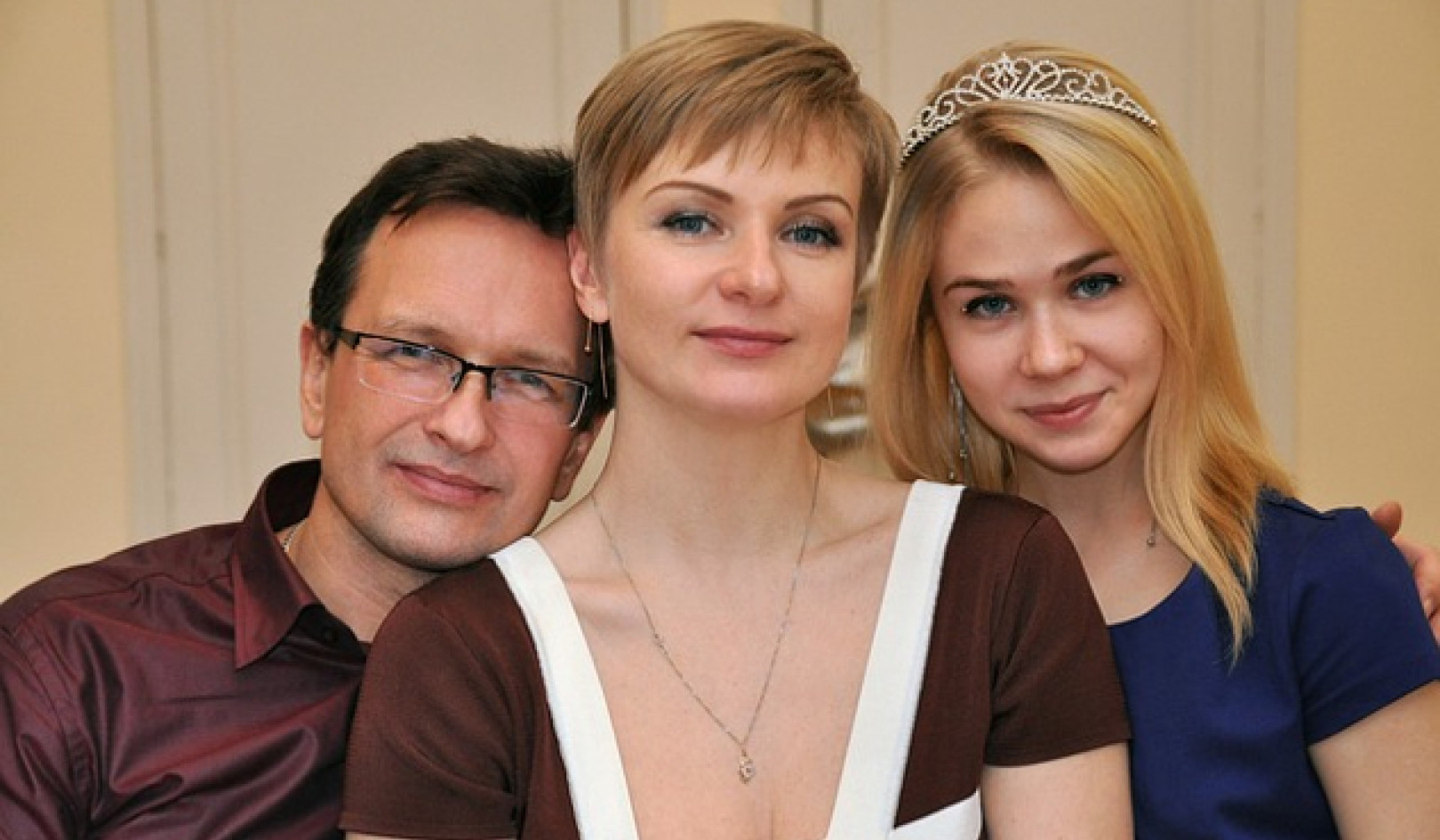 |
|
Image by Monfocus
"START FROM WHERE YOU ARE" is generally good advice in any undertaking. But, like many travelers on the highway, sometimes we don't even know that we don't know where we are and yet we are unwilling to admit it. Instead, lost as we may be, we keep driving, ashamed to ask for directions, unwilling to entertain the fact of our own inattention or ignorance. We blame the environment, the maps, anything but our own stupidity.
We keep going, hoping that sooner or later we will come upon some road sign, some familiar marking. And often we do. But often we don't. Our inattention or stubbornness can cost us many hours on the road.
Starting From Nowhere
In prayer, "start from where you are" can be beneficial too, although many of us don't know where we are. On one hand, we may easily misjudge our own capacities, thinking we have to go through all the stages that others have written about, mistrusting the unique workings of the spirit in our soul. On the other hand, we are strongly influenced by our projections of where we would like to be, especially if we have read one or more books on prayer.
Imagination is powerful, and it is so easy to simulate the experiences of the mystics long before we are ready to embody what they have written about. We have our eyes so fixed on the future that we fail to stay simply present to the present, which is sort of a prerequisite to starting from where you are.
I would rather suggest that, where prayer is concerned, we start from nowhere. Starting from nowhere allows anything to happen. Without a past, without a future, with nothing, there is less likelihood that we will be seduced by self-deception. (Or maybe not. There is probably no way around self-deception completely.) The eminent Zen teacher Suzuki Roshi called this approach "beginner's mind."
Beginner's Mind
On the path of prayer, beginner's mind for me implies that we enter the presence of mystery and bow down, because we are in awe at our own ignorance and our own inability to ever get things right. We let ourselves adjust to the fact that we will never be perfect "pray-ers," or accomplished holy men or women.
We will always be at square one. We will, in a sense, always be awaiting our kindergarten teacher to tell us what we are going to do on this, the first day of school. We have no "where we are," we have no experience in this great Mystery School. We know nothing. And if we do know something, we gladly let go of that so the mystery may predominate.
This beginner's mind is a beneficial attitude not only in prayer but in all relationships. "Not knowing" and "knowing nothing" is a fine way to approach a marriage partner, even after thirty years. When I know nothing and am willing to embrace that, I am soft, I can be directed and helped, I can be loved. If I approach lovemaking with a notebook of techniques I may find myself missing the wondrous way in which the lover is opening himself to me this morning.
Who Am I Kidding?
My teacher has given his devotees a form of self-inquiry that is eminently suited to the modern mind, and valuable to one who desires the next step in prayer. While Ramana Maharshi, the renowned Indian sage of the early part of the twentieth century, achieved enlightenment with the piercing question "Who am I?" my teacher encourages us to ask, "Who am I kidding?" Typically American, he knows the psychology of those who are born into and raised with the false promises of modern advertising.
We are constantly being lied to, and we are constantly lying to ourselves. People are kidding us. We are kidding ourselves. The process of spiritual life, then, is about revealing the multiple layers of the lie, the ways in which we have been deceived and have accepted and perpetuated the deception.
Who am I kidding that I know what prayer is? Maybe I do know something, or maybe I did know something the last time I addressed myself to this mystery, but right now I am naked. I am newly born. I don't yet know how to breathe in the rarefied atmosphere of this holy spirit.
Not knowing, or knowing nothing, I am suddenly free of expectations. I wait. I do not even know for what I wait. My heart is fresh. My heart is ready. Come, what may.
Nothing To Stand On
Our prayer feels risky when it is based on not knowing. To spend a lifetime in prayer without ever getting a certificate ... no Ph.D. in prayer ... not even much assurance from the Dean that we're doing fine ... well, it's often a bit unnerving. It's natural to want reassurance; it's natural to seek for some authority who can confirm our approach.
We might suppose that our prayer was meant to build something solid, like a platform on which to stand, a place to set up house for a while, a launching pad for further exploration, or a prime spot from which to call out to God. And maybe it will. But we must be aware that our platform at best will be a rotating space satellite -- the merest speck in infinity -- and it will hang in nothing.
How do we know that our prayer is getting to the right place? Is there some cosmic ear out there somewhere, or a gigantic prayer receiver turned in our direction? (I'm not saying there isn't!) Or is the prayer aimed inside in some way? Who shall assure us that our love, our passion, our desire for merging, our desire for service, are really not just figments of our imagination?
And even if our spiritual guide or teacher tells us we are on the right track, will we believe him or her? Ultimately, where prayer is concerned, we can't take anyone else inside, just like we can't have an internal witness to our lovemaking. Admittedly, a lot of questions can come up when you start from nowhere. And valuable questions at that.
If we observe our worries or questions about prayer without immediately trying to fill in the blanks with answers, or without drawing conclusions that have to be acted upon, we can uncover some basic elements of our current cosmology of prayer. Having to live with our questions, without having them answered, feels dangerous -- more insecure than ever.
Starting from nowhere, I suggest that we take our not knowing, our standing on nothing, our imperfect prayer, our insecurity about our prayer and make that our prayer in the moment, recycling our doubts into our prayers, our questions into prayer, our lack of clarity into our prayer. "Lord I believe," cried out a blind man in the gospel of Jesus, "help my unbelief?"
Attempt At Some Type Of Control?
Can we possibly allow ourselves to have no hold on our prayer? After all, the results or the efficacy of our prayer may not be our business, if we are to believe those who have walked this path of prayer before us. Trying to determine just how effective our prayer is, or where exactly our prayer is going, is more likely our attempt at some type of control.
We can't have control, and shouldn't have control, in our relationship to God, as much as we'd like to. Are we going to let God be God, or, as in almost every other aspect of our lives, are we going to try to overlay our limited beliefs and expectations on the holy Other? Seems rather foolish if you ask me.
I suggest that we willingly give up our claim to a place on the faculty of the University of Prayer, and settle with gratitude into always being a "kneeler in training," as Etty Hillesum called herself.
Certainly there are many valuable approaches to prayer -- specific words, preferred postures, centering techniques like breath or visualization. These methods will serve us at times, especially when they are given to us by our spiritual teacher or guide. But keep in mind that methods too may rest in a context of not-knowing, and should.
When the use of any method shifts me into a context of "Now I'm getting somewhere" or "Now I'm winning," I run the risk of spiritual pride and "spiritual materialism" so well described by the Tibetan master Chogyam Trungpa Rinpoche. And with that, I've lost.
Do we really ever get somewhere in love? Good communication (and holy communion) with the other means that we're each standing on nothing, holding no past or future, losing it all, and thereby finding ourselves in love.
A PRAYER OF NOT KNOWING
O God, I do not know how to pray. Because I do not know what it means to pray properly, to pray in such a way as to serve or worship, I must offer what I have and can do, as the prayer. And here it is.
Let this posture be the prayer
Let this intention be the prayer
Let this very not-knowing be the prayer
Let this breath be the prayer
Let this resistance and discomfort be the prayer
Let this distraction be the prayer
Let this drinking of tea be the prayer
Let this eating of breakfast be the prayer
Let this hectic schedule be the prayer
Let this attempt at Remembrance be the prayer
Let the steps walked in silence across the parking lot be the prayer
Let the birdsong noted be the prayer
Let this poor journal writing be the prayer
Let the vastness of the night sky be the prayer
Let worrying, and then dropping the worry be the prayer
Let chanting and dancing and reading be the prayer
Let dressing and undressing be the prayer
Let sleeping and rising and sleeping and rising be the prayer
Let missing someone be the prayer
Let memories and whispered calls for help for others be the prayer
Let opening the door and putting on and taking off shoes be the prayer
Let the keeping of simple order be the prayer
Let the celebration of light and darkness be the prayer
Let warmth and cold be the prayer
Let all of it, not bad, not good, just as it is and wondrous...
be the prayer.
O God, in my helplessness, from nowhere, with nothing, let these poor prayers, as flowers, draw You to the garden from which their fragrance arises. Amen.
Reprinted with permission of the publisher, Hohm Press.
2001. www.hohmpress.com
Article Source:
Praying Dangerously: Radical Reliance on God
by Regina Sara Ryan.
 Praying Dangerously instructs us that we can grow up spiritually, leaving behind a childish relationship to prayer as a superstitious ritual or mere plea for favors. It encourages readers to recognize the difference between prayer that asks only for reassurance, and prayer that asks for God and stands for transformation. The author invites us to assume greater responsibility for our inner lives by choosing the "not-knowing,” the insecurity, the difficult circumstances as potential blessings and means of purification and inspiration. We can cease being "victims” of God's Will, while at the same time embracing genuine surrender and reliance on the irrefutable power of love. This 10th anniversary edition is fully revised, with several completely new chapters including: "The High Cost of Forgiveness”--a subject that challenges everyone, and "Praying on the Subway,” about how our travels and other activities in public places can provide us with a constant impetus for blessing others.
Praying Dangerously instructs us that we can grow up spiritually, leaving behind a childish relationship to prayer as a superstitious ritual or mere plea for favors. It encourages readers to recognize the difference between prayer that asks only for reassurance, and prayer that asks for God and stands for transformation. The author invites us to assume greater responsibility for our inner lives by choosing the "not-knowing,” the insecurity, the difficult circumstances as potential blessings and means of purification and inspiration. We can cease being "victims” of God's Will, while at the same time embracing genuine surrender and reliance on the irrefutable power of love. This 10th anniversary edition is fully revised, with several completely new chapters including: "The High Cost of Forgiveness”--a subject that challenges everyone, and "Praying on the Subway,” about how our travels and other activities in public places can provide us with a constant impetus for blessing others.
Info/Order this book (newer 10th anniversary edition)
About the Author
 Regina Sara Ryan has studied contemplation and mysticism for over thirty-five years. After leaving the convent, where she lived as a Roman Catholic nun in the 1960s and early 70s, Regina began her exploration of other religious traditions. She was particularly inspired by the lives of the great women of Hinduism, Judaism, Buddhism, Christianity and Sufism who had flourished in their dedication to God and others. Her book, The Woman Awake, recounts the stories of twenty-four of these remarkable women. Since meeting her own spiritual teacher, the Western Baul master Lee Lozowick, in 1984, Regina has continued to follow what she calls a path of "unashamed devotion' in which she works to bring her life of contemplation into action.
Regina Sara Ryan has studied contemplation and mysticism for over thirty-five years. After leaving the convent, where she lived as a Roman Catholic nun in the 1960s and early 70s, Regina began her exploration of other religious traditions. She was particularly inspired by the lives of the great women of Hinduism, Judaism, Buddhism, Christianity and Sufism who had flourished in their dedication to God and others. Her book, The Woman Awake, recounts the stories of twenty-four of these remarkable women. Since meeting her own spiritual teacher, the Western Baul master Lee Lozowick, in 1984, Regina has continued to follow what she calls a path of "unashamed devotion' in which she works to bring her life of contemplation into action.
























